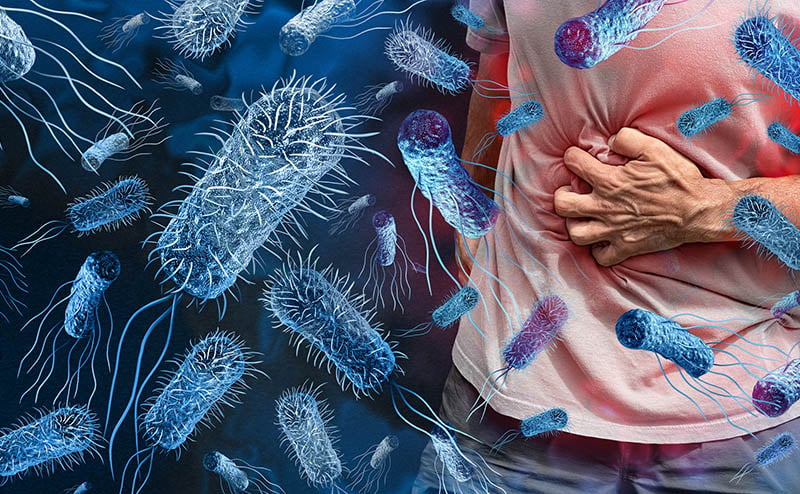Even the healthiest foods can become unhealthy if improperly handled, cooked or stored. CDC estimates that each year 48 million people get sick from a foodborne illness, 128,000 are hospitalized, and 3,000 die.
Food poisoning can be caused by several different bacteria, such as salmonella or botulism. Although certain types of food poisoning can be fatal, most cases run their course in a couple of days.
Symptoms of food poisoning are similar to those of the flu, except for fever, which is more likely to occur with the flu, and should be treated the same. They usually begin from two hours to two days after eating the tainted food and include:
- Headache
- Nausea
- Diarrhea and/or vomiting
- Stomach cramps or pain
More serious symptoms can include blurred vision, fatigue and a dry mouth.
Sip water or diluted juice as soon as vomiting has decreased. If symptoms continue for more than 24 hours, or if you are unable to tolerate any fluids, contact your primary care doctor or visit the emergency department. Also seek emergency care if you become dehydrated. Most adults can handle one day without nutrition, but continued vomiting to the point of dehydration requires medical attention. Finally, be aware that adults can handle dehydration better than small children and that high fever also can indicate a more serious illness.
 American College of Emergency Physicians
American College of Emergency Physicians







